Dunkley by-election: Anthony Albanese faces his litmus test
A by-election involving just 113,000 people has come to represent the fate of the leaders, the policies and electoral future of the entire nation. How has it come to this?
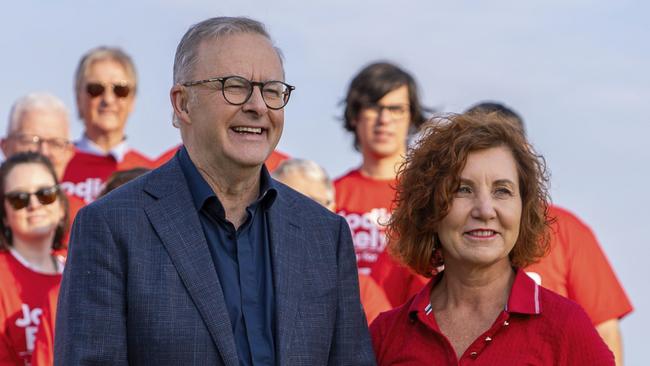
Yet, because of the actions of Anthony Albanese, the safe Labor-held Melbourne seat has become a litmus test: for the political judgment of the Prime Minister; for Labor’s biggest economic policy since being elected; for the strength of ALP support following the Indigenous voice to parliament referendum loss; and for the government’s progress towards the federal election.
As a result, the outcome in the by-election, and the size of the swing for or against Labor that will be determined by a few thousand votes, inevitably will be seen as a measure of Albanese’s leadership ability and Labor’s future.
What’s more, Peter Dutton’s resurgence will be judged by the outcome and, because of the novel involvement of Advance Australia as a conservative version of the Labor-supporting GetUp, there will be a strategic assessment of Liberal Party campaigning for the next election.
The leadership of both Albanese and the Opposition Leader will be checked against the results, which include an unlikely swing to Labor, a “status quo” swing against the government of 2-3 per cent, a draw of 3-4 per cent away from Labor, a Labor loss of 5 per cent or more and, deemed the most unlikely, the seat lost to the Liberals.
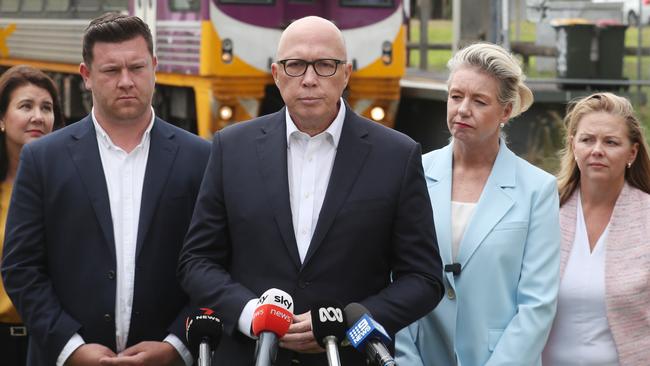
A positive swing to Labor and a loss of the seat are clearly both unequivocal victories for Albanese and Dutton respectively, but the furious working on expectations, with Labor suggesting a 7 per cent swing would be a normal result and the Liberals arguing a 4 per cent swing would be an ALP loss, is a signal of where the final vote is likely to fall.
So, a by-election involving 113,000 people disproportionately has come to represent the fate of the leaders, the policies and electoral future of the nation.
Given the history of by-elections it will be an inescapable conclusion that a loss in Dunkley will be seen as a harbinger of Labor failure at the next election as the losses in Bass in 1975 and Canberra in 1995 were.
After Albanese suggested a 7 per cent swing against the government in a government-held seat was a general average, his grim declaration this week that “a win is a win” is a measure of his concern and, unfortunately for him, not the way the result will be viewed by the more than 20 Labor MPs who hold marginal seats below the 6.3 per cent Dunkley margin or whatever the swing is against the ALP.
After the crushing voice referendum loss because of Albanese’s mishandling of the campaign, the continuing cost-of-living crisis, the apparent failure of the government’s suite of relief measures from fee-free TAFE, pharmaceutical, medical and childcare assistance to convince voters enough was being done to ease financial stress and Labor MPs being told this week there are people who still don’t know about the mammoth tax changes, there is clear evidence positive messages are not getting through.
Thus the Dunkley by-election has become instrumental in the essential reset for Labor’s plans for this year, a necessary lift of failing ALP fortunes, a desperation to be seen to be doing something about the cost-of-living crisis and Albanese’s need to stay at home and “be in touch”.
It is also a key to Albanese’s renewed campaign to blacken the character and intent of Dutton and the Coalition.
The key elements of all these aims was the formulation and timing of the recast legislated stage three tax cuts that were designed in December and launched in January with the knowledge that there would be a by-election for Dunkley after the death of popular Labor MP Peta Murphy.
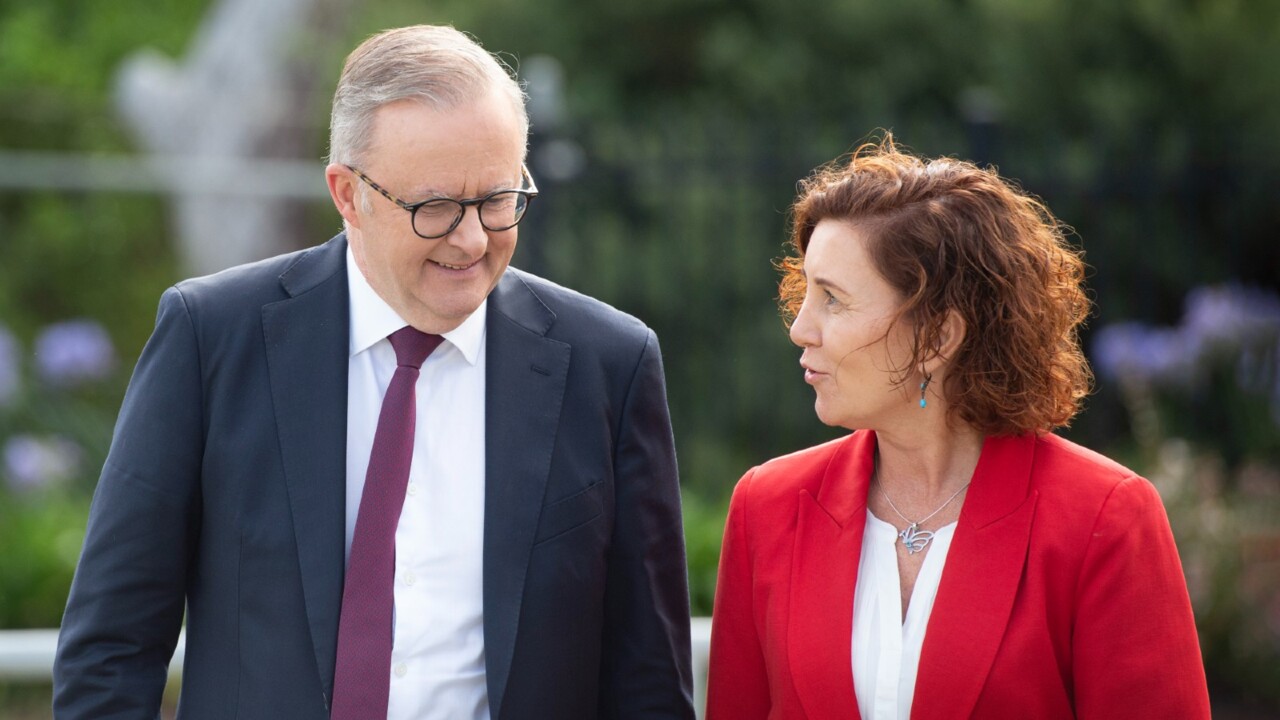
In early December, when the government began its secret plans to break an election promise and remake the stage three tax cuts to redistribute the dividend of bracket creep from higher-income earners to those on lower incomes, Albanese was still spooked by the loss of the Indigenous voice referendum, the Opposition Leader had “won” the final sittings of parliament, ALP support was falling in the polls and there was a desperate need to convince people the government would do something about soaring prices and a housing crisis.
While denying the position had changed on altering the stage three tax cuts – although Treasury was doing exactly this with the knowledge of Jim Chalmers – Albanese reassured voters that the government would do something about cost-of-living relief.
Just before Australia Day Albanese, after campaigning nationally since before Christmas, revealed the government’s plan to remake the stage three tax cuts and redistribute the dividend of bracket creep for people earning more than $150,000 to those earning less than $45,000.
Having locked the entire Labor parliamentary party into the “tax cuts for everyone” at a taxpayer-funded summit in Canberra, Albanese framed the Coalition as being against the tax cuts for lower-income earners and tried to wedge Dutton into opposing the new legislation.
While the tax cuts at an average $15 a week from July 1 were greeted with enthusiasm from Labor as a silver bullet to deal with cost-of-living pressures and a blow to Dutton, there was no palpable sign in the polling of any public enthusiasm – and of late there has been direct evidence that Labor’s support has fallen despite the tax cuts.
Albanese’s personal support also has suffered greatly because he was seen as breaking an election promise, breaking his declaration that “my word is my bond”, and then branded as the “liar in the Lodge”. For Labor there is a growing risk that the benefits of the tax cuts in the public mind will be outweighed by the political damage to the Prime Minister.
The ramifications of Dunkley validating public polling that the tax cuts have failed to boost Labor are that after the catastrophic loss of the referendum the government’s biggest policy has not been sold in such a way as to penetrate in a positive way the public mind and will be a second strategic failure. Even worse, the tax cuts were introduced because Labor’s suite of policies designed to take financial pressure off families across the past 18 months were not seen to be doing enough and the tax cuts were designed as cost-of-living relief. Tanya Plibersek, one of the most experienced and senior cabinet ministers, said on Thursday that the “bunch of stuff” the government had introduced to relieve family stress was not satisfying people before the tax cuts.
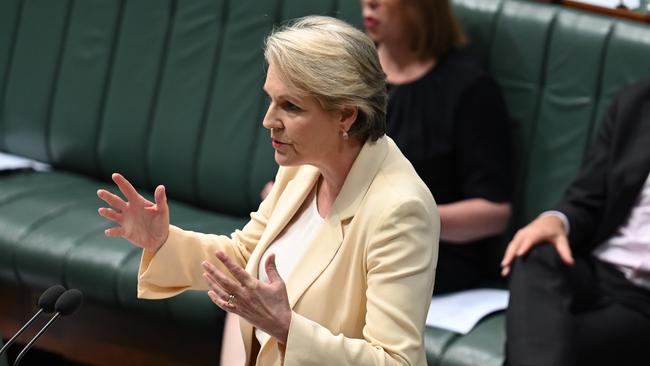
“We did a bunch of stuff before we tried this. Cheaper medicines, more bulk billing, free TAFE, electricity bill relief, higher pensions and payments, higher commonwealth rent assistance. We did a bunch of stuff to try and take some of the pressure off people’s cost of living,” she said. But, she said, changing the tax cuts, despite taking their commitments seriously, was the obvious solution and it was fair to shift the cuts from those on the highest incomes to those on the lowest.
For his part, Dutton has avoided talking about tax cuts, even as they passed the parliament this week, and has concentrated on issues about the price of petrol, energy and cars while pursuing the general issue of record immigration and the specific issue of the handling of the release of 149 immigration detainees and the arrival of 40 asylum-seekers by boat.
Public polling has shown a “high awareness” of immigration as an issue in Dunkley, with more than two-thirds of people aware of the illegal arrivals and the debacle of the detainee releases and 50 per cent of people saying Albanese had “lost control of the borders”.
As well, Dutton has avoided any suggestions of a swing in Dunkley, sticking to the stock standard 3 per cent, and reassuring voters that the by-election could send a message to the government without disrupting or overturning Albanese.
It’s a technique designed to reassure Labor voters that it’s OK and safe to vote against the government.
Of course, Dutton knows a big swing against Albanese or even a loss of the seat will send reverberations through the government, unsettle Labor MPs and question the entire standing of the policy and strategy of the tax cuts.
It’s always difficult to measure sentiment in a single seat through polling but there seems to be enough evidence Albanese’s massaging of the message to suggest a 7 per cent swing is possible is a wise political move because if there is a big swing he is going to face a serious test.
Ironically, it is a test the Prime Minister has set himself.





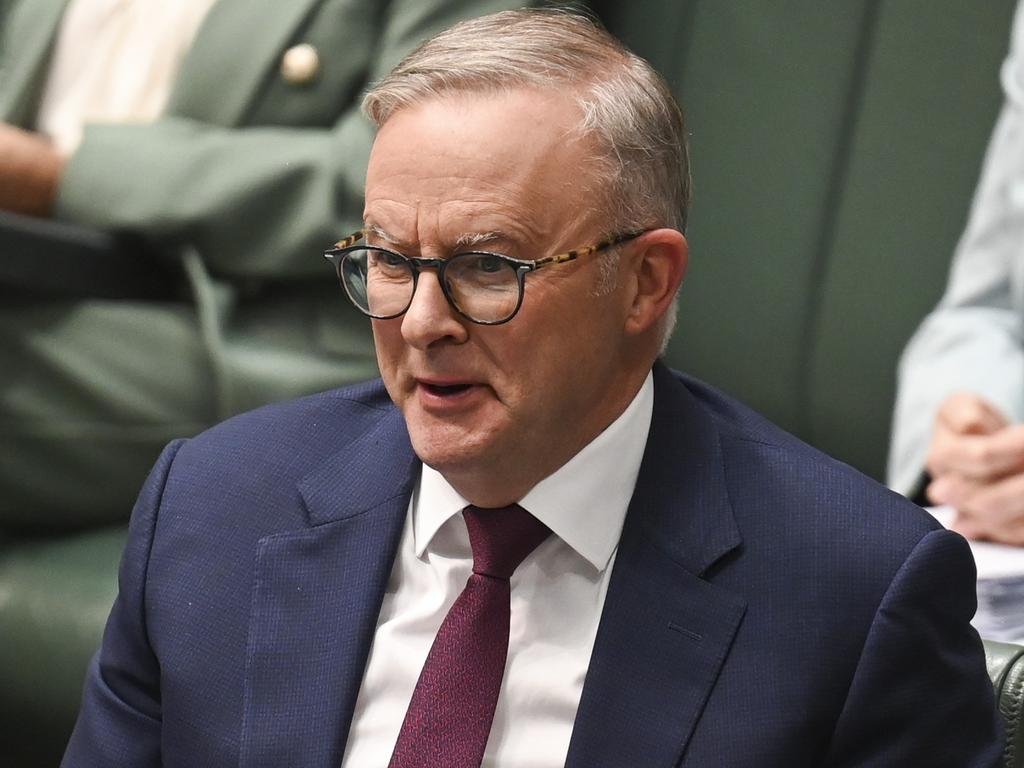


The Dunkley by-election has assumed a political importance well beyond a simple single-seat election that cannot change the government of the day, the balance of power in the parliament or directly alter the national leadership.